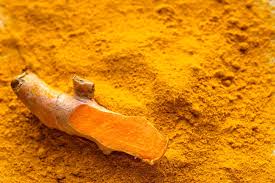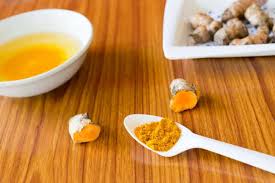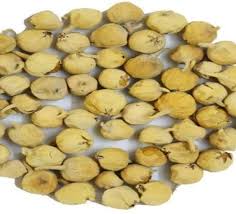Living an Ayurvedic lifestyle is a natural way to achieve balance and well-being. Ayurveda, the ancient science of life, promotes harmony between body, mind, and spirit through holistic approaches to diet, lifestyle, and self-care. At FreelancerBridge, we understand the importance of maintaining physical and mental health while managing the demands of freelancing. In this article, we’ll guide you through how to incorporate Ayurvedic principles into your daily routine to build a healthier and more balanced lifestyle.
In today’s fast-paced world, freelancers often find themselves caught up in the stress and demands of their work. However, Ayurveda offers a holistic approach to wellness that addresses not just physical health but also mental clarity, emotional stability, and spiritual well-being. By following Ayurvedic principles, you can build a lifestyle that helps you feel more energized, focused, and centered, allowing you to thrive both in your personal and professional life.
Here are the key components of building an Ayurvedic lifestyle for better health:
Understanding Your Dosha: Ayurveda is based on the concept of three doshas: Vata, Pitta, and Kapha, which represent different elements within the body. Your dosha type is unique and determines your physical traits, emotional tendencies, and health vulnerabilities. Identifying your dosha is the first step toward personalizing your lifestyle for optimal health.
- Vata (Air and Ether): Characterized by creativity, enthusiasm, and restlessness. Vata imbalances may lead to anxiety and irregular sleep patterns.
- Pitta (Fire and Water): Known for strong determination, focus, and drive. Pitta imbalances can result in irritability, anger, and digestive issues.
- Kapha (Earth and Water): Marked by calmness, steadiness, and endurance. Kapha imbalances can cause weight gain, sluggishness, and feelings of heaviness.
Understanding your dosha allows you to adjust your diet, activities, and self-care practices accordingly.
The Ayurvedic Diet: One of the core tenets of Ayurveda is nourishing the body with food that is appropriate for your dosha. A balanced diet based on Ayurvedic principles supports digestion, energy levels, and overall health. Here’s how to tailor your diet:
- Vata: Favor warm, moist, and grounding foods like soups, stews, and root vegetables. Avoid raw, cold, or dry foods, which may aggravate Vata.
- Pitta: Choose cooling foods such as cucumbers, melons, and dairy. Avoid spicy, acidic, or fried foods that can increase Pitta imbalances.
- Kapha: Light, dry, and warm foods such as leafy greens, grains, and legumes work best for Kapha types. Minimize heavy, oily, and sweet foods.
Incorporating Ayurvedic spices like turmeric, ginger, cumin, and coriander can also improve digestion and balance the doshas.
Daily Routine (Dinacharya): Ayurveda emphasizes the importance of a consistent daily routine, or Dinacharya, to maintain health and well-being. Following a daily routine creates stability in your life and helps manage stress.
- Morning Routine: Start your day early with practices like tongue scraping, oil pulling, and drinking warm water with lemon to detoxify your body. Follow this with a light breakfast based on your dosha.
- Exercise: Regular physical activity is key to balancing energy and improving circulation. For Vata types, gentle exercises like yoga or walking are ideal. Pitta types benefit from moderate, cooling activities such as swimming, while Kapha types may benefit from more intense exercises like running or strength training.
- Sleep: Consistent sleep patterns are essential for balancing your dosha and maintaining overall health. Ayurveda recommends going to bed early and rising early for optimal rejuvenation.
Pranayama and Meditation for Mental Clarity: Mental health is a key aspect of the Ayurvedic lifestyle. Practices like pranayama (breathing exercises) and meditation are essential for calming the mind, reducing stress, and improving focus. Here are some techniques to incorporate:
- Anulom Vilom (Alternate Nostril Breathing): This helps calm the nervous system and balance the left and right sides of the brain.
- Kapalbhati (Breath of Fire): A stimulating breathing technique that boosts energy and clears mental fog.
- Meditation: Practicing mindfulness or guided meditation for 10-15 minutes daily can reduce anxiety, improve concentration, and promote emotional balance.
Self-Care Practices: Ayurveda encourages regular self-care rituals to nurture your body and mind. Here are some practices to include in your routine:
- Abhyanga (Self-Massage): A warm oil massage helps improve circulation, detoxify the body, and promote relaxation. Choose oils based on your dosha (e.g., sesame oil for Vata, coconut oil for Pitta).
- Herbal Teas: Sip on calming herbal teas such as chamomile, lemongrass, or ashwagandha to promote digestion, relaxation, and immunity.
- Ayurvedic Skin Care: Use natural products such as aloe vera, turmeric, and rose water to hydrate, soothe, and rejuvenate your skin.
Seasonal Adjustments (Ritucharya): Ayurveda also emphasizes adapting your lifestyle to the changing seasons, known as Ritucharya. Seasonal changes can affect the doshas, and Ayurveda recommends modifying your diet and lifestyle accordingly to stay balanced throughout the year.
- Summer (Pitta Season): Focus on cooling foods and beverages, stay hydrated, and avoid excessive heat exposure.
- Winter (Vata Season): Use warming foods and oils, increase hydration, and incorporate grounding activities.
- Spring (Kapha Season): Favor light, detoxifying foods and engage in invigorating physical activities to prevent sluggishness.
Herbal Supplements: Ayurvedic herbs and supplements can further support your health. Popular herbs like ashwagandha, triphala, turmeric, and brahmi offer benefits for stress relief, digestion, and mental clarity. Always consult with a professional before introducing new herbs to your routine.













